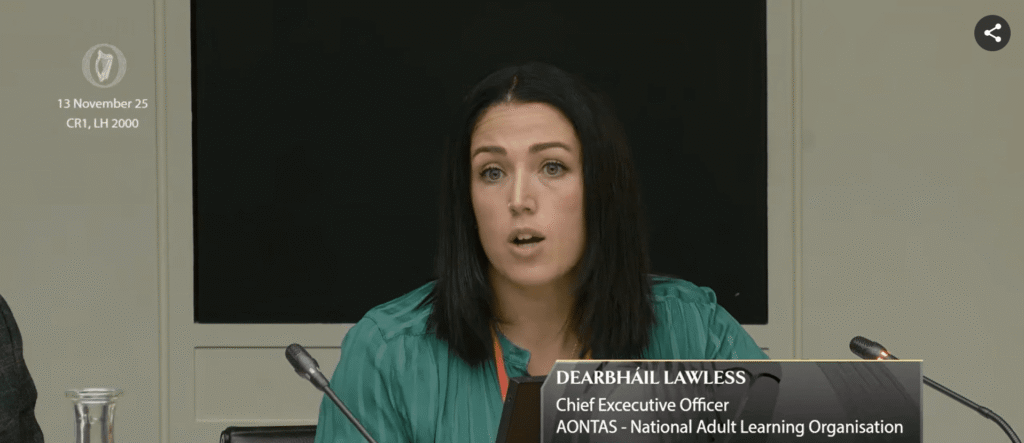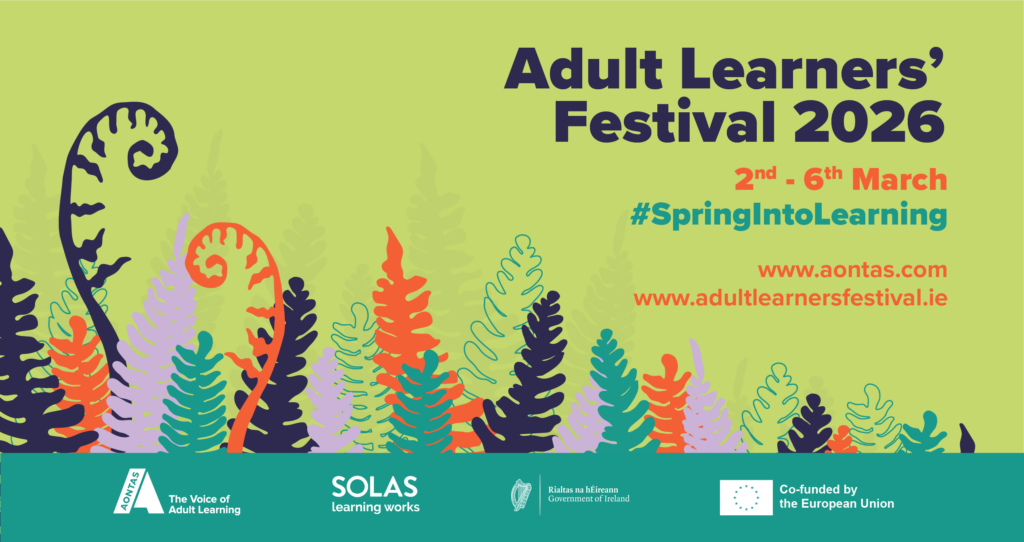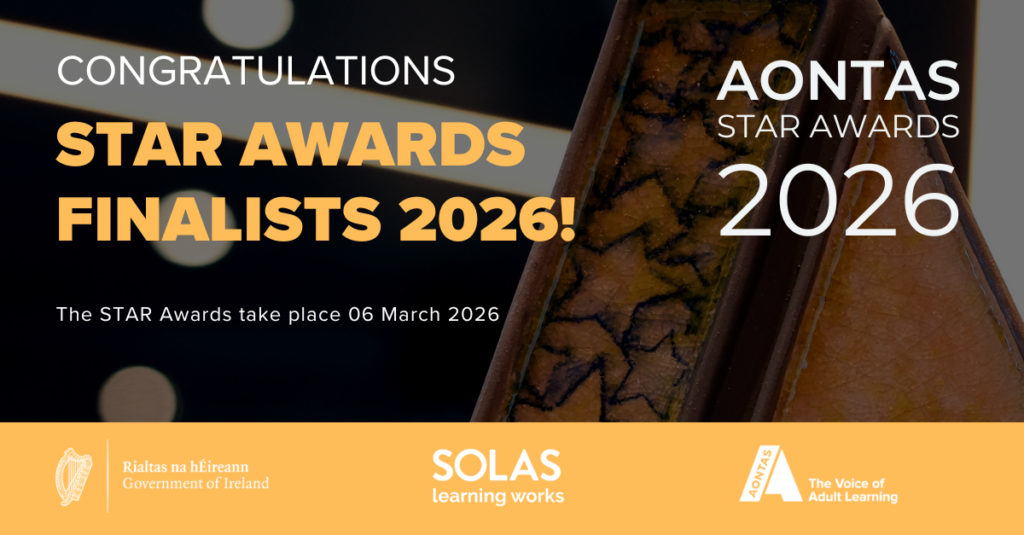A few days ahead of the publication of the draft Programme for Government, AONTAS CEO Niamh O’Reilly and Jimmy Prior of Southill Family Resource Centre (Limerick) featured in the Irish Times with an opinion piece describing the resilience of community education and its centrality in supporting educational equality during COVID-19.
To read the full article published by the Irish Times on Friday, 12th June click here.
Prior to this article’s publication, AONTAS interviewed Jimmy Prior, Co-ordinator of Southill Family Resource Centre and AONTAS CEN member. We discussed at length the value of community education and its far-reaching impacts for individuals and society. Southill Family Resource Centre is a clear example of how, in mitigating educational disadvantage, it is necessary to recognise that different people need different supports to get to the same level of advantage.
During the discussion, Jimmy succinctly described the value of community education. Below, we have shared some extracts from the interview. These comments give further context and demonstrate the agility of community education in responding to COVID-19 as well as the need for continued support.
Community Education Supports Mental Health
 “At every class and at every meeting we’re having there are two things talked about. One is about mental health but also that we understand you don’t want to talk about it online but if you want to ring me you’re welcome to ring me and everything you say to me is in confidence.”
“At every class and at every meeting we’re having there are two things talked about. One is about mental health but also that we understand you don’t want to talk about it online but if you want to ring me you’re welcome to ring me and everything you say to me is in confidence.”
“Because we have the councillor on call that has made such a difference in the work that we’re doing, between the old folks and the families, and the learners as well. We also still have contact with the guidance councillor… she can help and advise them as well.”
“As a National Family Resource Centre, we have our own code of practice around suicide awareness… we’re all going to do an online training around suicide awareness. Also, the resources online that we’re able to tap into like the HSE, TUSLA, the Child and Family Agency, the other FRCs, we’re taking some of that stuff and were putting it up on our website. Fantastic stuff; how to mind your mental health.”
Community Education Supports Families
“The counselling and the family support stuff is big for us at the moment as well as the supporting education piece. We’re probably contacting over 200 people a week between the learners and the family support pieces. We also have non-Irish national families living in hotel rooms that we’re also very conscious of because with the parks being closed they weren’t able to get out, and the fact is that they’re only receiving 19 euros a week. Every week they used to get a voucher for the laundrette and the laundrettes [were] closed so they had no washing facilities … we were able to negotiate on their behalf, the agency that is looking after them, the hotel is now offering them space to do their washing.”
Community Education Supports Older Adults
Connecting in with Southill FRC through Zoom and WhatsApp has been a “godsend for some of them because in some cases, even if it’s only a face, we’re the only people they’ve seen for the last thirteen weeks.”
“… we’ll look at the possibility of some funding, you know, to get some smart phones, and train them in how to use them. You know, Covid’s staying with us for a while, it’s not as if it’s going to be going anywhere, and their lifeline was meeting every Thursday, they’re living on their own.”
Increased Demand for Community Education
“I know that for many their actual courses officially only finished last week, but now that they’re at home … there’s no jobs … I actually see local lads here, people here, will probably be asking us is there something we can do online, is there anything around volunteerism, is there anything around courses or classes… We would normally be closing down at the end of June; we’re looking at putting up pilot programmes for four weeks online. Four weeks of introduction to IT; four weeks of introduction to textiles, just to see if there’s an interest. Each one of us is keeping an ear open to what people are asking for, what would they like to do? We’re the only ones who can do that, to be honest about it, because we are based in the community.”
Fund Community Education
“If I’m being realistic, these 200 calls are absolutely wonderful but there is a financial impact. Our project is 100 percent funded by the National Family Resource Centre Programme, which funds us for the staff, and for about 10 percent of the overhead costs. The rest, any programme, anything we’re running, we have to find funding for. As you’re aware, there have been no National Lottery grants. They would have been here in May, June. We would have made applications for older people, younger people; for women’s groups, for men’s groups. We’re heading into 2021 and we’re not sure where we’re going.”

Southill Family Resource centre receives funding from the National Family Resource Centre Programme and Tusla Child and Family Agency. Courses are enabled through tutor hours provided by Limerick and Clare Education and Training Board.






